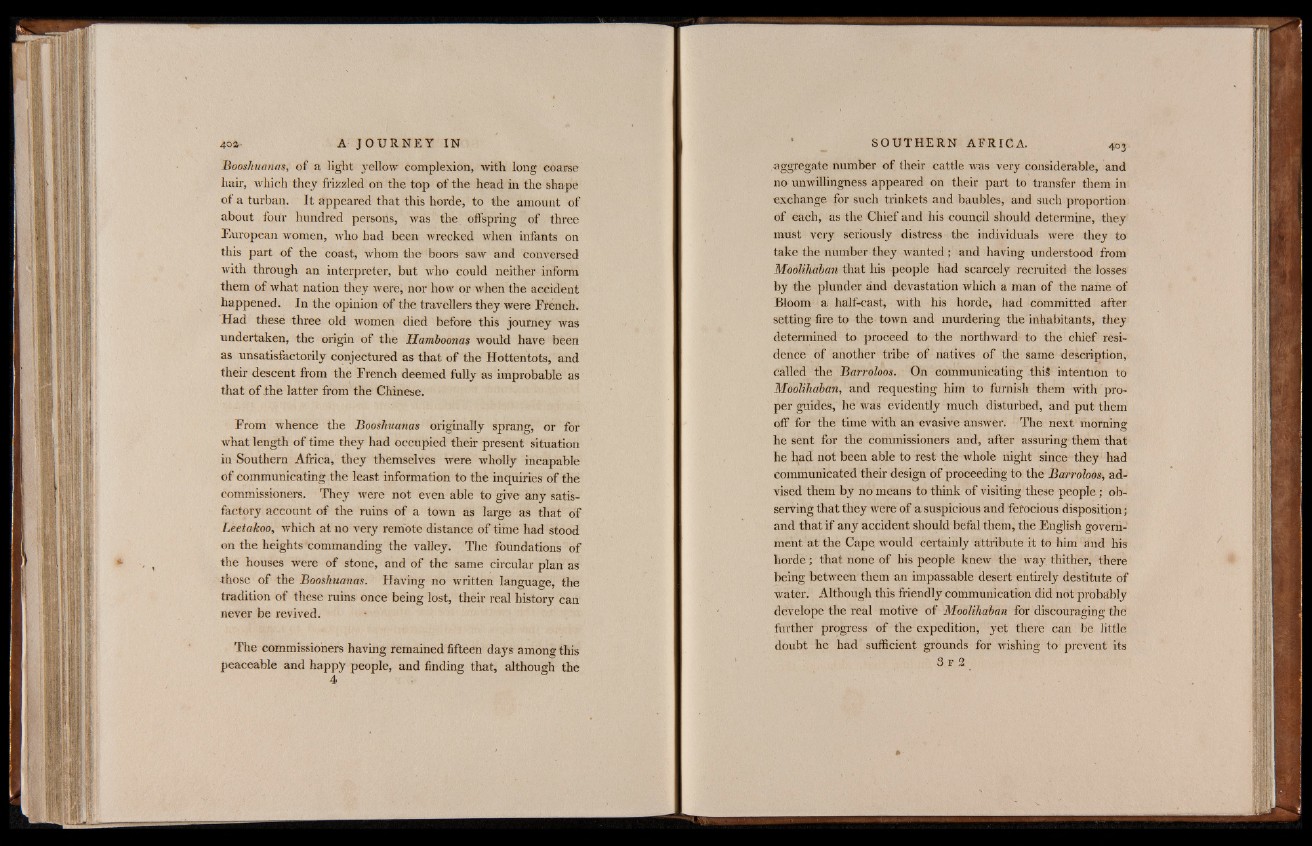
Booshuanas, of a light yellow complexion, with long coarse
hair, which they frizzled on the top of the head in the shape
ot a turban. I t appeared that this horde, to the amount of
about fou'r hundred persons, was the offspring of three
European women, who had been wrecked when infants on
this part of the coast, whom the boors saw and conversed
with through an interpreter, but who could neither inform
them of what nation they were, nor how or when the accident
happened. In the opinion of the travellers they were Erench.
Had these three old women died before this journey was
undertaken, the origin of the Hamboonas would have been
as unsatisfactorily conjectured as that of the Hottentots, and
their descent from the French deemed fully as improbable as
that of .the latter from the Chinese.
From whence the Booshuanas originally sprang, or for
what length of time they had occupied their present situation
in Southern Africa, they themselves were wholly incapable
of communicating the least information to the inquiries of the
commissioners. They were not even able to give any satisfactory
account of the ruins of a town as large as that of
Leetakoo, which at no very remote distance of time had stood
on the heights commanding the valley. The foundations of
* , , the houses were of stone, and of the same circular plan as
those of the Booshuanas. Having no written language, the
tradition of these ruins once being lost, their real history can
never be revived.
The commissioners having remained fifteen days among this
peaceable and happy people, and finding that, although the
4
aggregate number of their cattle was very considerable, and
no unwillingness appeared on their part to transfer them in
exchange for such trinkets and baubles, and such proportion
of each, as the Chief and his council should determine, they
must very seriously distress the individuals were they to
take the number they wanted; and having understood from
Moolihaban that his people had scarcely recruited the losses
by the plunder and devastation which a man of the name of
Bloom a half-cast, with his horde, had committed after
setting fire to the town and murdering the inhabitants, they
determined to proceed to the northward to the chief residence
of another tribe of natives of the same description,
called the Barroloos. On communicating this intention to
Moolihaban, and requesting him to furnish them with proper
guides, he was evidently much disturbed, and put them
off for the time with an evasive answer. The next morning
he sent for the commissioners and, after assuring them that
he had not been able to rest the whole night since they had
communicated their design of proceeding to the Barroloos, advised
them by no means to think of visiting these people; observing
that they were of a suspicious and ferocious disposition;
and that if any accident should befal them, the English government
at the Cape would certainly attribute it to him and his
horde; that none of his people knew the way thither, there
being between them an impassable desert entirely destitute of
water. Although this friendly communication did not probably
develope the real motive of Moolihaban for discouraging the
further progress of the expedition, yet there can be little
doubt he had sufficient grounds for wishing to prevent its
3 f 2